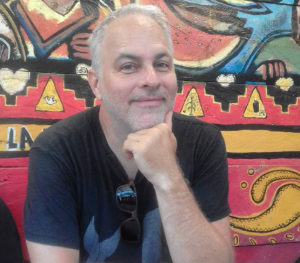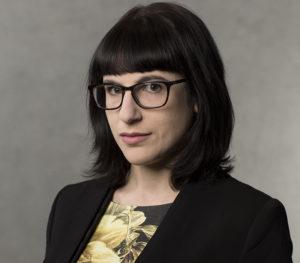Loading...

Amid questions of planetary degradation, irreversible climate change, species loss, and other human and non-human borne crises, questions of “futureness” and “futurity” have become deeply pressing. Given our long histories of inequality, disempowerment, and displacement set in motion by the uneven violences of racial capitalism and colonialism, it has become increasingly evident that the possibility of resilient futures are accessible to the few but excluded for the many. This panel discusses new imaginaries for radical futurisms in this moment of ecological emergency.
This session features presentations by T.J. Demos and Jessica Hurley, followed by discussion with respondent Nadine Chan (Cultural Studies, CGU).
T.J. Demos will be presenting “Abolition Ecologies: Insurgent Universality, Solidarity, and Worlds-to-Come”
With reference to three approaches to the experimental aesthetics of abolition ecology—those of Thirza Jean Cuthand, The Otolith Group, and Black Quantum Futurism—this presentation discusses current modelings of radical Indigenous and Afro-futurisms and worlds-to-come founded upon social justice and environmental flourishing. Where radical imagination meets radical praxis is in the material forces of solidarity, the political form of belonging, more than ever necessary today in the collective battle against international fascisms and global neoliberalisms. While acknowledging the bankruptcy of Eurocentric universalisms, this presentation defends approaches to insurgent political alliance beyond identitarian fragmentation, including within and through political aesthetics of abolition—ultimately of racial and colonial capitalism.
Jessica Hurley will be presenting “Ecological Futurelessness”
This talk argues for the importance of apocalyptic modes and imaginaries for radical thought in this moment of ecological emergency, particularly for those peoples whose futures are most threatened by the unevenly distributed violence of racial capitalism, settler colonialism, climate change, and other forms of disaster. Drawing on interdisciplinary theoretical, literary, and artistic accounts of how chrononormativity works to oppress and disenfranchise Black, Indigenous, queer, and disabled populations, it offers a new theorization of apocalypse as radical futurelessness, a formal afuturity that can disrupt the normative time of social reproduction in which the future extends out from the conditions of the present. As contemporary thought begins to reckon with the foreclosure of its own futures by environmental and social crisis, this talk animates futurelessness as a starting point for thought rather than its end, as a place for struggle and resistance and somehow, impossibly, for hope.
Speakers
T.J. DemosProfessor of History of Art and Visual Culture, and Director of the Center for Creative Ecologies, UC Santa Cruz |
 |
Jessica HurleyAssistant Professor of English at George Mason University |
 |
T. J. Demos is the Patricia and Rowland Rebele Endowed Chair in Art History in the Department of the History of Art and Visual Culture, at University of California, Santa Cruz, and founding Director of its Center for Creative Ecologies. Demos is the author of numerous books, including Against the Anthropocene: Visual Culture and Environment Today (Sternberg Press, 2017); Decolonizing Nature: Contemporary Art and the Politics of Ecology (Sternberg Press, 2016); The Migrant Image: The Art and Politics of Documentary During Global Crisis (Duke University Press, 2013) – winner of the College Art Association’s 2014 Frank Jewett Mather Award – and Return to the Postcolony: Spectres of Colonialism in Contemporary Art (Sternberg Press, 2013). Demos co-curated Rights of Nature: Art and Ecology in the Americas, at Nottingham Contemporary in January 2015, and organized Specters: A Ciné-Politics of Haunting, at the Reina Sofia Museum in Madrid in 2014. During 2019–21, with the Center for Creative Ecologies, and as a Getty research institute scholar, he’s working on a Mellon-funded research project, art exhibition, and book project dedicated to the questions: what comes after the end of the world, and how can we cultivate futures of social justice within capitalist ruins? His new book, Beyond the World’s End: Arts of Living at the Crossing was recently released by Duke University Press.
Jessica Hurley is Assistant Professor of English at George Mason University and the author of Infrastructures of Apocalypse: American Literature and the Nuclear Complex (University of Minnesota Press, 2020). Her work has appeared in symplokē, Mediations, Comparative Literature Studies, Commonwealth Essays and Studies, American Literature, Extrapolation, Frame, The Faulkner Journal, and the edited collection The Silence of Fallout: Nuclear Criticism in a Post-Cold War World, and been recognized by the Don D. Walker Prize in Western Literature, the 1921 Prize in American Literature, and the Jim Hinkle Memorial Prize. In 2018 she co-edited a special issue of ASAP/Journal titled Apocalypse.